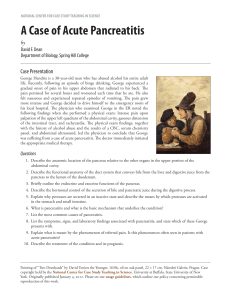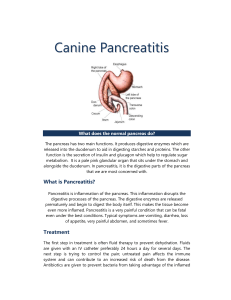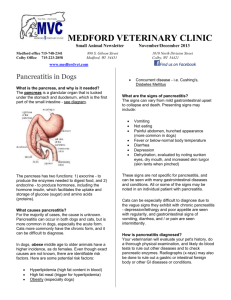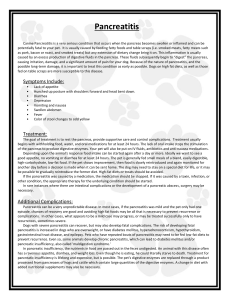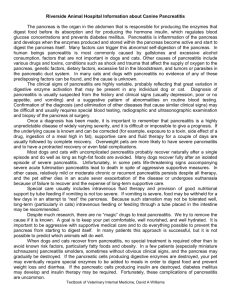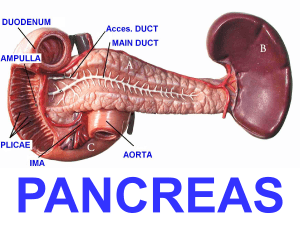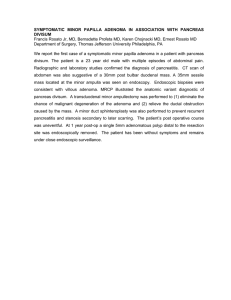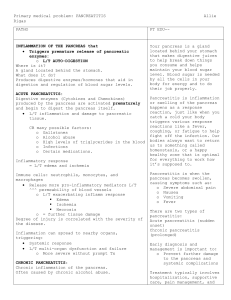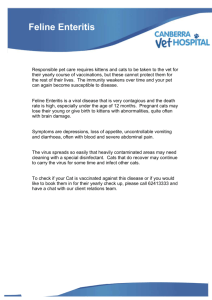Feline Pancreatitis - Belle Mead Animal Hospital
advertisement
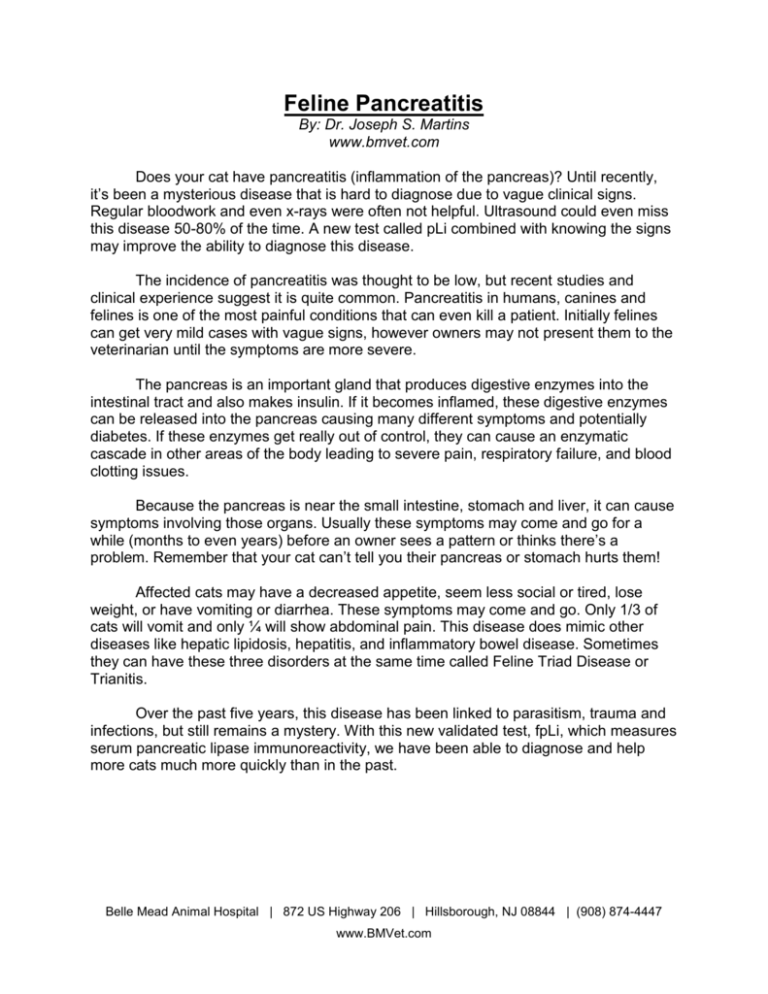
Feline Pancreatitis By: Dr. Joseph S. Martins www.bmvet.com Does your cat have pancreatitis (inflammation of the pancreas)? Until recently, it’s been a mysterious disease that is hard to diagnose due to vague clinical signs. Regular bloodwork and even x-rays were often not helpful. Ultrasound could even miss this disease 50-80% of the time. A new test called pLi combined with knowing the signs may improve the ability to diagnose this disease. The incidence of pancreatitis was thought to be low, but recent studies and clinical experience suggest it is quite common. Pancreatitis in humans, canines and felines is one of the most painful conditions that can even kill a patient. Initially felines can get very mild cases with vague signs, however owners may not present them to the veterinarian until the symptoms are more severe. The pancreas is an important gland that produces digestive enzymes into the intestinal tract and also makes insulin. If it becomes inflamed, these digestive enzymes can be released into the pancreas causing many different symptoms and potentially diabetes. If these enzymes get really out of control, they can cause an enzymatic cascade in other areas of the body leading to severe pain, respiratory failure, and blood clotting issues. Because the pancreas is near the small intestine, stomach and liver, it can cause symptoms involving those organs. Usually these symptoms may come and go for a while (months to even years) before an owner sees a pattern or thinks there’s a problem. Remember that your cat can’t tell you their pancreas or stomach hurts them! Affected cats may have a decreased appetite, seem less social or tired, lose weight, or have vomiting or diarrhea. These symptoms may come and go. Only 1/3 of cats will vomit and only ¼ will show abdominal pain. This disease does mimic other diseases like hepatic lipidosis, hepatitis, and inflammatory bowel disease. Sometimes they can have these three disorders at the same time called Feline Triad Disease or Trianitis. Over the past five years, this disease has been linked to parasitism, trauma and infections, but still remains a mystery. With this new validated test, fpLi, which measures serum pancreatic lipase immunoreactivity, we have been able to diagnose and help more cats much more quickly than in the past. Belle Mead Animal Hospital | 872 US Highway 206 | Hillsborough, NJ 08844 | (908) 874-4447 www.BMVet.com
